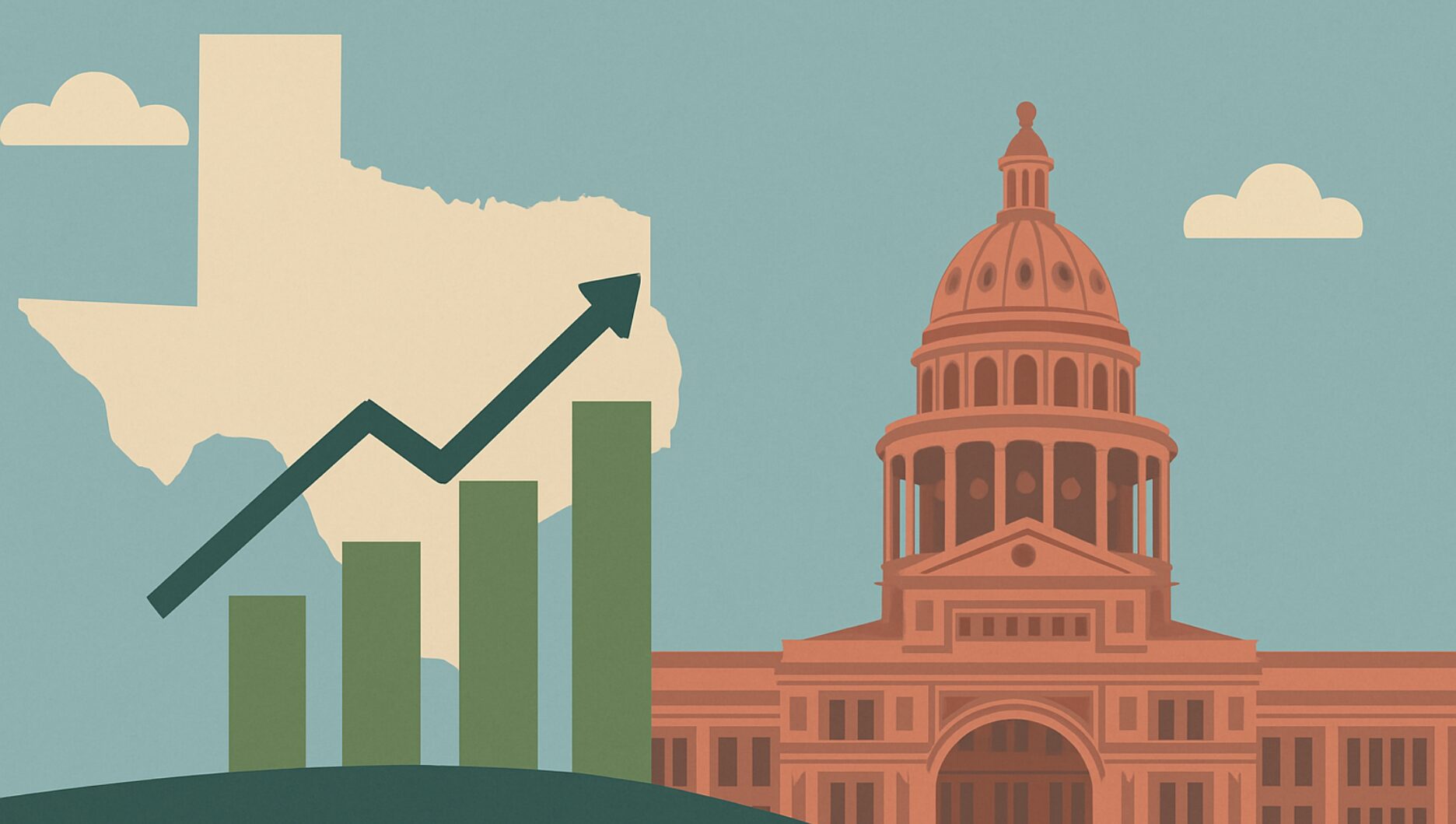
Texas continues to lead in many ways. There were 192,100 new jobs added over the past year — the most of any state in raw numbers. In March alone, Texas added 26,500 nonfarm jobs, bringing the total number of jobs to a record 14.3 million. Texas also set a new record for its labor force, with 15.8 million Texans working or seeking employment, and 15.1 million employed.
That’s worth celebrating. But weaknesses are mounting.
Our 1.4% job growth rate ranks 19th nationally, lagging behind faster-growing states such as Idaho (2.6%), South Carolina (2.4%), and Utah (1.9%). Worse, our unemployment rate rose to 4.1%, tied for 31st among the states. That’s nearly a full point higher than where we were in early 2023.
Austin needs to own this slowdown.
The 88th Legislature passed the largest state budget in Texas history — $321 billion for FY 2024–25 — and then added a bloated supplemental budget on top. This session, the State funds spending proposal is up 43% over the past two sessions, surpassing the rate of population growth plus inflation. There’s still no firm spending limit in place to stop this.
The result? Unsustainable growth in government — and a missed chance to use our $24 billion surplus for permanent fiscal reform.
Texas’ economy continues to perform well. GDP rose 2.8% over the year, with 1.9% real growth in Q4 2024 alone, outpacing the national average of 1.6%. Personal income also grew 4.6% in Q4, showing continued resilience from Texas households.
But policymakers in Austin have been squandering these strong fundamentals.
Texans were promised real property tax relief — what they got was temporary rate compression, boosted homestead exemptions, and an appraisal cap that distorts valuations. None of this addresses the root problem: overspending on the government school monopoly, which is propped up by revenue from the school district’s M&O property tax, the largest portion of most people’s tax bills. Ultimately, until property taxes are eliminated, Texans will continue renting their homes from the government.
Despite overwhelming voter support, lawmakers also managed to miss the mark on universal school choice.
Yes, Texas passed an ESA program, a good first step — but it’s essentially a pilot program with a hard cap of just 1.5% of the state’s 6.3 million school-age kids. And while some families will benefit, the program falls short of delivering broad educational freedom or true competition. It also came with an $8-for-$1 tradeoff, with $8 in new public school funding for every $1 toward school choice. That’s not empowering all families — that’s propping up the bloated bureaucracy.
At the same time, small businesses and local entrepreneurs continue to face high property taxes, permitting delays, and a complex regulatory maze. Yet, the Legislature expanding the Texas Enterprise Fund and creating new taxpayer-backed programs, such as the Texas Future Funds, expanded Film Incentive Program and the Dementia Research Fund. These programs distort the market and reward the politically connected, all while average Texans are asked to tighten their belts.
The good news? We still have time to get it right.
Texas has the workforce, infrastructure, and innovation to lead the country, but that requires policy decisions rooted in freedom, not favoritism. Legislators need to stop pretending that economic growth happens in a vacuum. It’s the result of intentional decisions: to spend less, tax less, regulate less, and let people prosper.
Here’s what should happen next:
- Freeze the 2026-27 budget and pass a firm state spending limit tied to population growth plus inflation, no exceptions, for all state and local funds.
- Provide the path to eliminate school M&O property taxes by using state surpluses for rate compression until they reach zero.
- Expand education freedom statewide, not just for a select few, or at least acknowledge that is the intention with a clear path to universal school choice.
- End corporate welfare by defunding slush funds and removing special treatment for insiders, while ending many of the current and proposed constitutionally dedicated funds.
- Streamline permitting and cut red tape to unleash small business growth and increase housing supply, helping to address the affordability crisis.
Texas remains relatively strong — our $2.6 trillion economy ranks eighth in the world if it were a separate country. However, we can’t continue to make fiscal and economic policy blunders. The warning signs are there. Growth is slowing, and the government is excessively expanding. That’s not the Texas model we’ve spent decades building.
If Texas wants to keep leading the nation, lawmakers must remember what made this state great: faith, family, and free markets. Let’s get back to that before we turn into California.
Texans for Fiscal Responsibility relies on the support of private donors across the Lone Star State in order to promote fiscal responsibility and pro-taxpayer government in Texas. Please consider supporting our efforts! Thank you!
Get The Fiscal Note, our free weekly roll-up on all the current events that could impact your wallet. Subscribe today!




